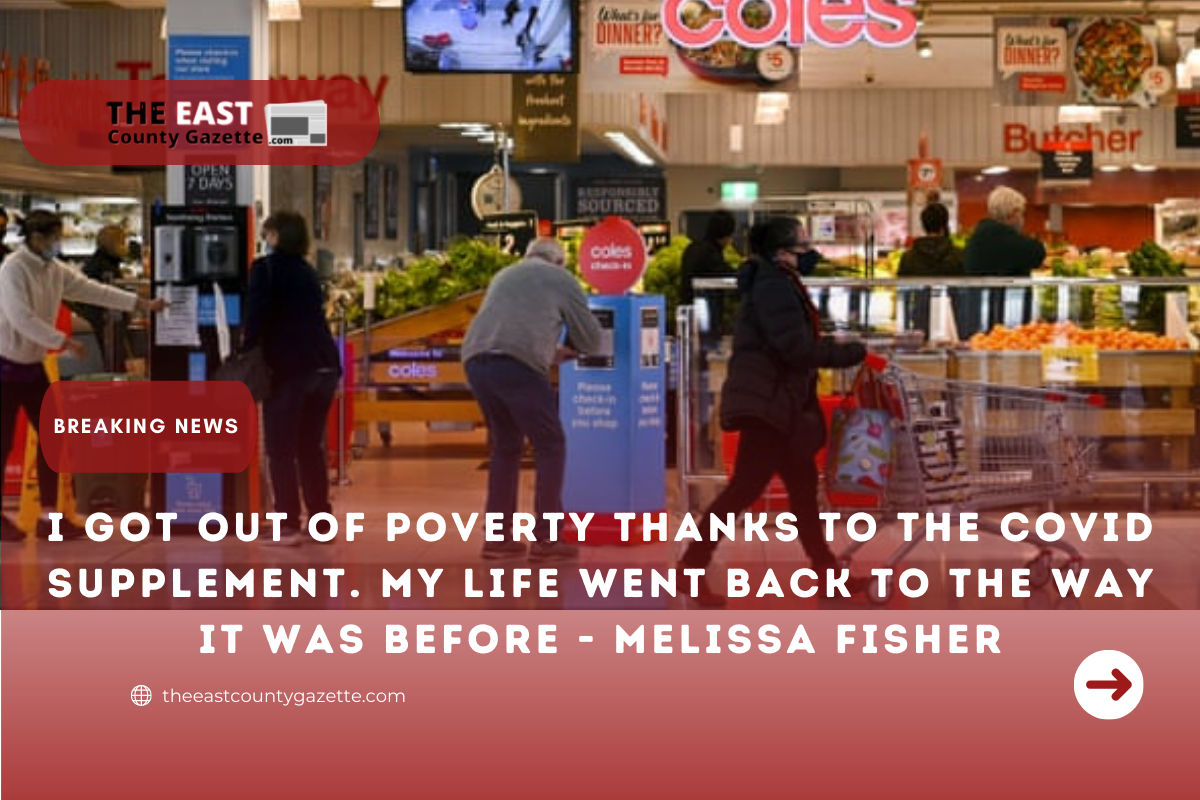As we look ahead to the year 2022, I think about the previous year and how living in poverty affects not only me but thousands of other people as well. I was doing well at the beginning of the year 2021.
The Covid supplement, introduced by the government at the time, had helped to increase the number of job seekers.
However, despite the fact that some could argue that the money would be spent on illegal substances, gambling, booze, or cigarettes, in my case and many others, this was not the case at all.

Instead, I used the money to pay for a gym membership that included access to a swimming pool, good food, and time with my father, who was suffering from stage four cancer.
I had the funds to pay for transportation so that I could see him and attend all of his appointments. We created memories that, now that he is no longer with us, I will cherish forever.
Even though I have chronic conditions that make it difficult for me to engage in physical activity, I found that utilizing a treadmill or exercise bike provided me with the support I needed to exercise and then go swimming afterward.
Must check: Federal Reserve Stimulus Checks To Be Given Just Until March
I ate more fresh vegetables and fruit, as well as lean cuts of meat, instead of pasta, rice, bread, and potatoes, which were all things I shouldn’t have been eating but were inexpensive and would fill me up and allow me to stretch a meal even farther.
Something truly remarkable began to happen. I lost weight, my A1C dropped, and for the first time in my life, I was no longer in need of iron infusions.
My blood tests were getting better and better all the time. I was able to afford drugs and medical supplies, and I was even able to discontinue taking iron supplements and diabetes meds, as well as reducing the number of visits I needed to make to my psychologist.
I began to feel better and began to look ahead to the future. As a result of my improved health, I was looking forward to the new opportunities it would bring me. I even began to get more socially active with the other members of the gym.
My mental health has improved as a result of all of these adjustments. Due to not having to worry about food or prescription costs, I was able to reduce my stress levels significantly. I was certain that if an emergency occurred, I would be able to handle it.
I went out and got a new winter coat, as well as new clothes and shoes. I started to feel better about myself and even entertained the notion of returning to school. I grew more optimistic, and life didn’t seem to be such a hardship anymore.
Things were beginning to look up. Other people on jobseeker have told me that they have observed a significant improvement in themselves and that their financial circumstances have improved as a result. Others were even able to obtain accommodation after being displaced.
I was able to meet up with a friend for a cup of coffee and participate in my local community. I didn’t have to worry about scheduling appointments ahead of time in case I didn’t have enough money for the bus fare on the day of the appointment.
There were so many things I could do that I could go on and on about them for days. They were simple things that most people take for granted, but they were things that being out of poverty provided: friendships, community connections, pride, hope, and better health, to name a few examples.
After that, the supplement was removed. The gym membership and healthy food alternatives were among the first things to be phased out. It was back to missing meals and overindulging in carbohydrate intake.
It was in November that I was diagnosed with scurvy and malnutrition as a result of my weight gain. I’m not undernourished since I eat, but the foods I consume are deficient in the vitamins I require.
Also read: Federal Reserve Stimulus Checks To Be Given Just Until March
In addition to taking vitamins and supplement tablets, I’m back to needing an iron infusion and six weekly blood tests, which I had previously avoided. As a result, my mental health has returned to normal, and I’ve been forced to re-engage with my psychologist, all of which is fortunately reimbursed by Medicare.
This leads me to wonder how much money would be saved on Medicare if we as a nation were to pull everyone out of poverty at the same time.
How many more people could improve their health and become more employable if they worked harder? Perhaps retaining welfare at such a low level does not serve to motivate individuals to work, but rather serves as a barrier to them obtaining gainful employment.
Australia is a very affluent country. Poverty is a result of public policy decisions. Rather than asking how we can afford to bring people out of poverty, perhaps the question should be asked how we can afford not to do so.
The work of Melissa Fisher, an Adelaide artist, and anti-poverty activist, is currently supported by the jobseeker’s allowance.

